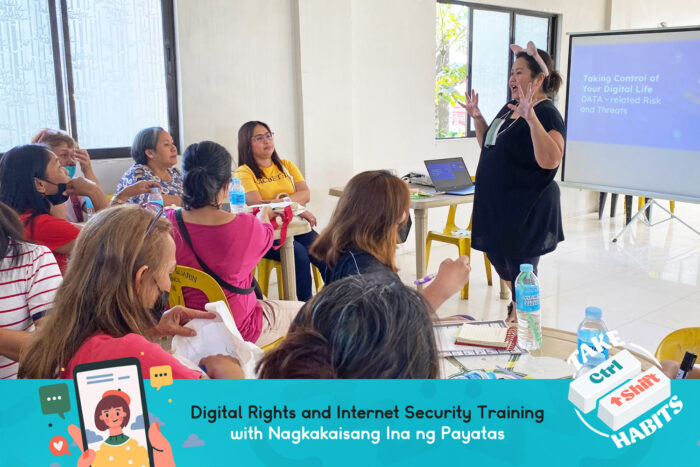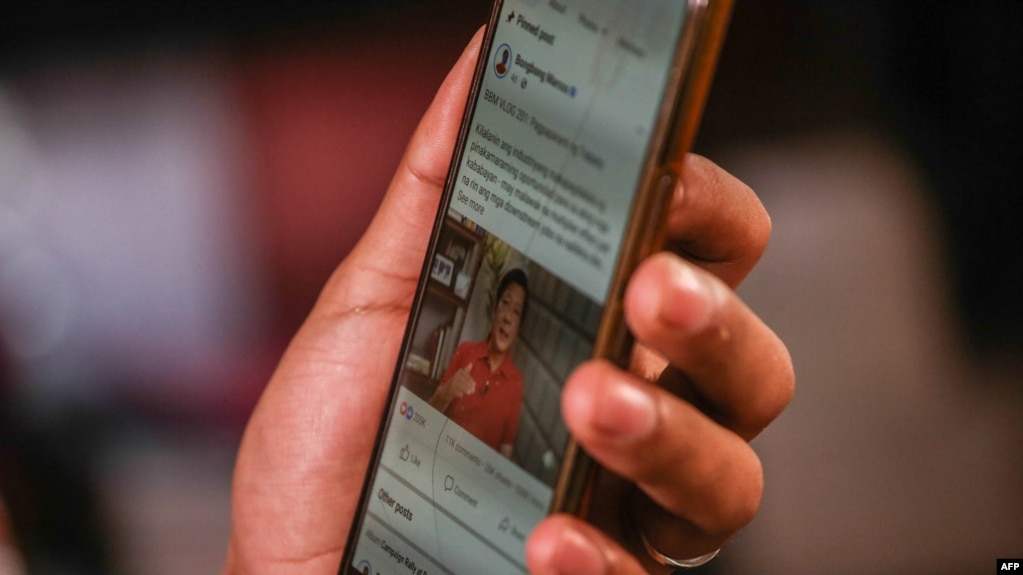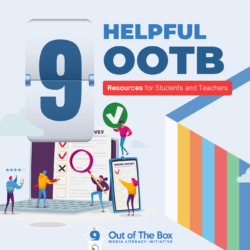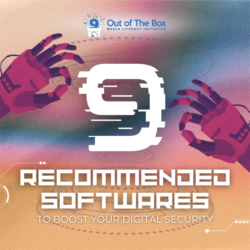Each year, more Filipinos gain access to the internet. In 2022, advisory firm Kepios found that there are 10 million more internet users in the Philippines, totalling to 85.16 million Filipinos by 2023. The growing internet penetration has allowed for efficient communication and dissemination of information, including convenient transactions with government and non-government entities, but it has also posed threats to Filipinos’ digital rights and security.
In a 2021 study conducted by the National Privacy Commission (NPC), it was revealed that only one in four Filipinos are familiar with the Data Privacy Act of 2012. This means two things: people are unaware of how to protect themselves online, and existing media and digital literacies are lacking.

Despite the Filipinos’ low knowledge and understanding of their digital rights, NPC’s study also found that 70% of Filipinos still hope to learn.
Both the rising number of internet users and the growing interest to become digitally literate exhibit the need to strengthen the country’s safeguard mechanisms against the higher risk of online attacks.
During the height of the COVID-19 pandemic, several cases of online attacks and disinformation have been reported, bringing the Philippines’ internet freedom score to 65 out of 100, according to the Freedom of Net report 2022. They highlighted the arrests, harassments, and website attacks against digital users, news outlets, and civil society.
Online attacks in the Philippines
Most Filipinos are largely aware of the misinformation on social media, but Internews found that only a third have attempted at verifying news. Due to the public’s vulnerability to misinformation, politicians exploited disinformation-for-hire firms, microinfluencers, and coordinated harassment campaigns to discredit critics and the media in the recent 2022 National Elections.
President Ferdinand Marcos Jr. and his family have benefited most from online disinformation. They tried to rebrand the Marcos name with ‘fake news’ about the Tallano gold and the late Marcos Sr.’s “Golden Era.” Tsek.ph discovered that 92% of the fact-checked claims about Marcos were supportive of him and his family’s history.
Alongside the manipulation of social media in democratic processes, the state has also obstructed internet freedom. In 2022, the National Telecommunications Commission ordered the blocking of Bulatlat, Pinoy Weekly and 25 other websites due to their alleged communist affiliations. This was enabled by the passing of the Anti-Terrorism Law in 2020.
News outfits like ABS-CBN News, Rappler, Vera Files, and CNN Philippines have also experienced Distributed Denial of Service (DDoS) attacks, causing their websites to become inaccessible.
Reinforcing digital rights policies
While the country faces these online attacks, several laws and regulations already exist that constitutionally protect both the media and the people’s rights.
The Data Privacy Act of 2012 should ensure the safety of one’s personal and sensitive information. Due to the prevalence of online scams and text spams with malicious links, the Cybercrime Investigation and Coordinating Center confirmed that Filipinos have lost millions of dollars. The recently enacted SIM Card Registration Act hopes to address this issue, but human rights advocates believe this compromises privacy as personal information collected may be leaked.
The Cybercrime Prevention Act of 2012 is another legislation that ideally implements the Data Privacy Act in preventing and prosecuting cyber crimes. Some of the offenses include data interference, computer-related fraud and identity theft, and child pornography.
In terms of improving internet access in the Philippines, the government has implemented their Free Wi-Fi for All program which aims to establish public Wi-Fi sites across the country. According to the Department of Information and Communications Technology, there are about 5,000 live sites in 75 provinces and the National Capital Region. They plan to build 9,000 more free Wi-Fi hotspots nationwide in 2023.
How to support the Philippines
International digital rights communities and civil society can assist in addressing digital rights issues in the country by partnering with local organizations and funding local efforts.
Improving people’s engagement in digital rights concepts involves localizing them at the grassroots level. Out of The Box conducted a digital rights and internet security training in 2023 for mothers in Payatas, Metro Manila.

More digital rights camps, seminars, and workshops for the underrepresented sectors in the Philippines will provide a big boost in the call to integrate media and digital literacies into the people’s education. The Foundation for Media Alternatives organized a camp in 2019 where they aimed to introduce digital rights to teachers, artists, and activists in incorporating these rights in their own field.
The skill to protect oneself from online attacks and disinformation is fundamental in keeping a country’s democratic structure intact. As digital rights become a growing concern for all Filipinos in the digitalization of daily activities, enhancing the population’s digital literacy is all the more crucial to mitigate the detrimental effects of issues surrounding digital rights.





